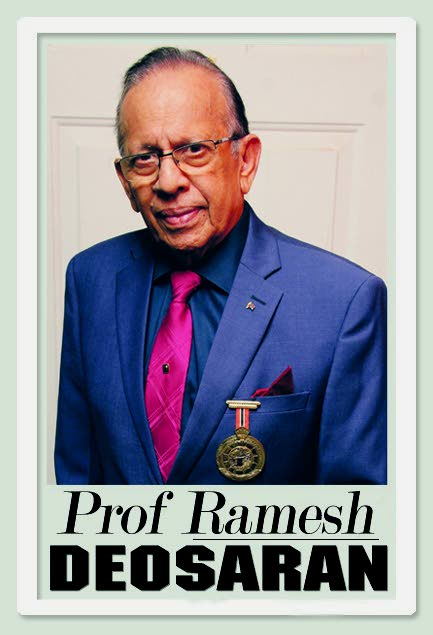Judges, justice and Veera

Last Tuesday’s judgment by High Court judge Avason Quinlan-Williams in the case of Veera Bhajan vs the Equal Opportunity Tribunal (EOT) and its chairman aroused both pleasure and anger. Winning her case, 33-year-old civil lawyer (born with no hands) had alleged that the EOT persistently blocked her since March from carrying out her tribunal duties as a lay assessor. The EOT denied this and has since stated its intention to appeal.
Meanwhile this judgment shows how an independent judiciary is vital for defending the weak and disadvantaged against the mighty and wealthy. The judgement, combining evidence with compassion, helps build public confidence in our judiciary. Public reaction favouring the judgment has been fast and furious. The country must stand for human rights and equality of opportunity but also for an independent, fearless judiciary.
Justice Quinlan-Williams ordered the EOT and its chairman, attorney Donna Prowell-Raphael, to pay $100,000 in damages for distress and embarrassment to Ms Bhajan and another $250,000 for vindicatory damages to express the court’s strong concerns. Seeking justice is often neither easy nor cheap. It has grown into a tiring, expensive economic commodity.
Technical delays are sometimes used by some government agencies to tire out and frustrate complainants rather than applying justifiable remedy or early settlement. This is where “legal injustice” falls upon poor, distressed complainants. And with no place to complain of the undue distress.
The judge asked why did this matter had to come to the high court. Not unusual. In other places, too many taxpayers-funded agencies (eg regional corporations, health authorities), abuse their bureaucratic powers and drag complainants up and down the place.
Justice Quinlan-Williams noted “over the past few months” the EOT and its chairman gave various reasons on why Bhajan should not be allowed to assume her duties, including its inability to accommodate a member with a disability and allegations that Bhajan may be perceived to be biased based on her disability.
However, in a subsequent release, the EOT claimed Bhajan “never raised allegations of discrimination on the basis of race, disability or hate.” The appeal court may handle this.
Regarding payments to Bhajan, the EOT argued that its policy, as with other departments, is to pay officers from the date of assuming office and not from the date of appointment. I am just asking: Is such delay the officer’s fault? What if the payment delay is one year, leaving the officer stuck, waiting without other options?
The judge noted: “It is not anyone and everyone who can take on that fight but the claimant can and she has.” Ms Bhajan got the Humming Bird medal for youth inspiration and development in 2011. The judge declared: “It is inexplicable that this matter is before a court. There ought to be a public outrage.” Why are so many matters that should and could have been settled brought before court?
Judges must now emphasise this proactive procedure if they wish for mediation and restorative justice where obviously appropriate. This judicial intervention will also help ease the growing backlog of cases facing judges. It’s not only juries that delay trials.
Mass media became very active. Attorney Emir Crowne last Thursday stated: “Her continued presence at the EOT will signal to the world that it has no respect for the rights of the differently-abled and that the EOA is nothing but a constitutional sham.”
Sulin Fraser: “The very fact that this matter even had to reach the courts was grounds for her dismissal. I say again, our institutions are failing us.”
Mary De La Rue: “Not only she. It’s happening under this government, anywhere you go is a victimising of people.” Many posts angrily called for chairmen of government agencies who breach the law and oppress citizens to be charged and fired.
This judgement and its fact-related humanitarianism must not be another nine-day wonder.
This case involved 14 distinguished lawyers (names published): Alvin Fitzpatrick, SC, Rajiv Persad, Michael Rooplal, Rajiv Chaitoo, Shari Fitzpatrick and Gabriel Hernandez for Ms Bhajan. For the EOT were Ramesh Lawrence Maharaj, SC, Leon Kalicharan, Kiel Taklalsingh and Karina Singh. For the AG office, Rishi Dass, Tenille Ramkissoon, Svetlana Dass and Karissa Singh.
These professionals are important to help spread the jurisprudential culture which Justice Quinlan-Williams strove so thoughtfully to promote.


Comments
"Judges, justice and Veera"